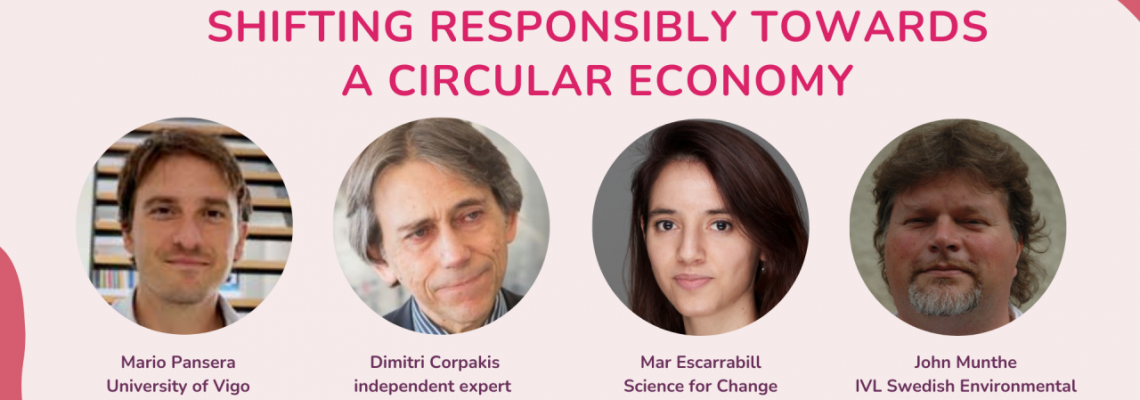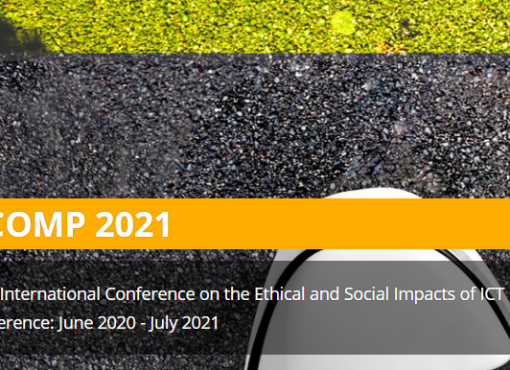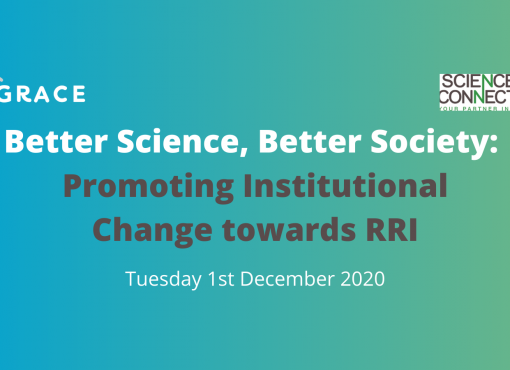
RRI & Sustainability: Shifting Responsibly Towards a Circular Economy
“The ‘Circular Economy’ has become a new buzzword in debates about sustainability. Circularity, however, is usually presented in terms of scientific and technological challenges that often neglect the socio-political aspects related to the transition towards more sustainable futures, such as participation, co-creation and social justice. We argue that the Circular Economy agenda might greatly benefit from the field of Responsible Innovation. This argument is at the centre of the EU-funded project, ‘A Just Transition to Circular Economy’ (JUST2CE), which aspires to address the present shortcomings of Circular Economy literature and practices. JUST2CE aims at understanding, in a critical way, under which conditions a responsible, inclusive and socially just transition to a Circular Economy is possible and desirable, what technical, political and social factors can enable or hamper such transformation and how these aspects can contribute to the development of transitional policy measures.
Keynote speaker
Mario Pansera, researcher in social sciences researcher at the University of Vigo, focusing on Responsible Research and Innovation and Innovation for degrowth/postgrowth. Mario is a Distinguished Researcher at the UVIGO and an affiliated Researcher at the Autonoma University of Barcelona. He also is the PI of ERC Starting Grant for the project PROSPERA and Coordinator of the H2020 project JUST2CE. Mario is honorary research fellow at the University of Bristol and international faculty at the Graduate School of Business of the University of Cape Town in South Africa where he teaches Responsible Innovation in the ExeMBA. He gained a PhD in Management at the University of Exeter Business School in 2014. After his Marie-Curie post-doctoral fellowship in Brussels, he worked as a research fellow at the University of Bristol from 2017 to 2020.
Panelists
Dimitri Corpakis, GRACE advisory board member, independent expert on innovation, growth and technological change. An engineer and planner by training, Dimitri Corpakis has more than 30 years’ experience on the European integration process. Dimitri worked extensively for the European Commission in Brussels as well as for the Greek civil service. His work experience spans many policy areas including Education and Training, Information and Communication Technologies, Social Sciences and Humanities, and Regional Innovation Ecosystems with an emphasis on interactions and synergies between the Union’s Research and Innovation and Cohesion Policies (European Structural and Investment Funds).
Mar Escarrabill, Responsible Research and Innovation specialist, HOOP Project Manager. Biologist, Master’s in Science Communication and Master’s in Human Rights and Citizenship. Ms. Mar Escarrabill has been working in Barcelona and Amsterdam in European projects regarding Responsible Research and Innovation, bioethics, science education and citizen science. During the past years, she has explored resources for fostering quadruple helix methodologies and strengthening science-community partnerships. Moreover, she has coordinated Science Festivals and created educational content for Science Museums.
John Munthe, Vice President, Research, IVL Swedish Environmental Research Institute. IVL has worked together with industry and authorities to solve challenges in environment and sustainability for more than 50 years. John Munthe started his research career in environmental chemistry and has more than 25 years’ experience from national and international research programs on environment and sustainability. His current research focus is green and sustainable chemistry in collaboration with industry and authorities to support the transition to climate neutral, low risk and sustainable chemical value chains.
Moderator
Simos Veloudis, Associate Professor, Senior Researcher – South-East European Research Centre (SEERC), GRACE expert partner
>> Register now
This event is part of the eight final webinars the GRACE project is holding every Tuesday from 26 October to 14 December, where project partners and external experts share their findings and provide useful knowledge to implement RRI in research performing and funding organisations
For almost three years, GRACE project partners have worked towards implementing fundamental institutional change in 6 research performing and funding organisations. With an intense mutual learning programme and a co-creation environment, six expert partners have supported six other partners in developing a set of specific RRI-orientated Grounding Actions in their organisation, paving the way for further institutional change.

